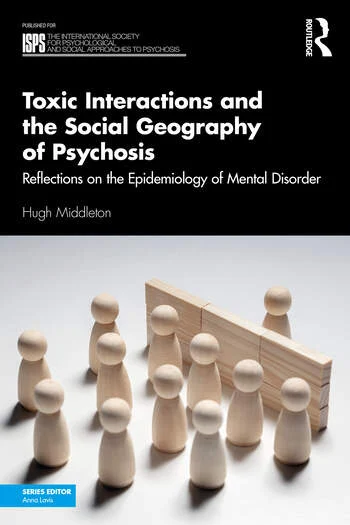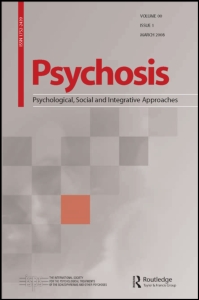ISPS Norway 2008 – Conference Review
September 7, 2012 2012-09-07 16:43ISPS Norway 2008 – Conference Review
The individual experience of developing and living with a psychosis
14-15th February 2008 at the Scandic Hotel Hamar, Norway
SUMMARY of the conference
260 participants attended at the 4th conference conducted by ISPS Norway and Innlandet Hospital Trust, Dept. of psychosis and rehabilitation.
On Thursday, February 14th 2008, the conference was opened by OLE-BJØRN KOLBJØRNSRUD (Senior Advicer, Norwegian Directorate of Health). Kolbjørnsrud introduced the conference talking about working among people with serious mental illnesss, goals in the strategy of quality development, how a good treatment offer from the decentralized psychiatric health clinics should be, services from the Norwegian Directorate of Health and how to utilize new knowledge and experiences.
AUD LIEN (Chairman ISPS Norway). Lien supplied with information about ISPS in an international and national view. The web-site of ISPS is www.isps.org. The ISPS international conference 2009 will be held in Copenhagen June 15th – 19th. The subject for next years conference in Hamar will be “Recovering processes”, date is set to February 5th – 6th. 2009.
PAUL MØLLER (Researcher, Chief Psychiatrist, Dr. Med., Buskerud Hospital Trust, Clinic of Psychiatry). The subject for Møller’s presentation was “Self-experience and self-understanding in schizophrenia and psychosis. A phenomenological existential foundation for the understanding and the therapeutic dialogue”, and the main subject was weakened subjectivity/selfconceit. Møller focused on what subjectivity really is, weakened subjectivity and therapeutic effects in exploring weakened subjectivity. He also talked about the EASE-manual and the Norwegian interview guide which were distributed to all of the conference attendants. The manual can seem difficult to get at, but it’s not impossible. Read the interview guide and the manual simultaneously.
PAUL MØLLER – workshop w/ELISABETH HAUG og UNNI BRATLIEN. Elisabeth Haug is working on her PhD in ” Self-experience and self-understanding in schizophrenia and psychosis”. Paul Møller is her main supervisor. Haug uses of the EASE-manual – which requires good background knowledge. But she finds the manual very useful, both at a pre-treatment stage and in relation to patients with a more chronic illness. The questions often had a vitalizing effect on the patient and on the relation to the doctor. The most unwell patients often did not understand the questions, the most well ones often could give straight, deepened and exemplified answers. Unni Bratlien is working on a research project on illness mechanisms in the development of schizophrenia and bipolar illnesses. She is focusing on the subjective understanding, the importance of “wondering” with the patient, and glance past the symptoms which we have interpreted.
The attendants were given the opportunity for dialogue and questioning – unfortunately with some sound/microphone problems. Many of the attendants found the subject very interesting, a useful perspective for the future. According to Kirsti Stavø it could be difficult to separate weakened subjectivity from problems related to psychosis. Møller told this was a well known approach to the problem and replied that the advantage in this way of understanding is the focus on the phenomenon itself. All kinds of hallucinatory phenomenons is influenced by the life of the patient, regardless category of diagnose, the dialogue and the relation is essential. The words and phrases are the most important tools in psychotherapy. Further on he said this was a perspective for growth in the milieu therapy, because all therapists look for the same – in different areas.
ELSE-MARIE FALCH GULBRANDSEN (County Chairman Mental Health, Oslo). Gulbrandsen gave a vital and personal presentation from her own life as a paranoid schizophrenic, about life in general, the development of the illness and how she’s managed to cope with the illness during 35 years.
SOLFRID VATNE (Principal at Molde University College) presented a Thesis (2006) based on the meaning of setting limits “to correct and to aknowledge – two contemporary perspectives – in conflict. Vatne presented results from her own research.
KARI NYSVEEN (RMN / Project coordinator, Innlandet Hospital Trust) and JAN KÅRE HUMMELVOLL (RMN / Doctor of Public Health / Professor in psychiatric nursing and mental health care at Hedmark University College). Nysveen had a presentation about “The Milieu Therapy Project” – a cooperative research project involving 3 wards at Innlandet Hospital Trust, Dept. of psychosis and rehabilitation. The main aim of the project is to systematize and develop the milieu therapeutic offer to patients suffering from a serious mental illness and a simultaneous drug problem – based on research knowledge and practical based competence. Hummelvoll talked about cooperative inquiry, emphasizing the abilities for local experience to create central knowledge. This work demands time and availability to work as a co-researcher and courage to investigate your own practice.
The annual meeting of ISPS Norway then took place, followed by a showing of a film about the “ROP-Project”.
On Friday February 15th the day started with a presentation about the Cultural Element by Ole Kristian Thommessen and Anne Flugstad.
TORBJØRN ALMLID (Managing Director, Innlandet Hospital Trust). Almlid gave an information about Innlandet Hospital Trust; there will be established decentralized, strong and robust psychiatric health clinics, somatic and psychiatric services will to a great extend be co-located, increased availability, extent and activity, and better quality and higher degree of research. Almlid guided us through the main fields of focus for 2008 for Innlandet Hospital Trust.
ANNE GRETHE KLUNDERUD (Chairman Mental Health Norway). Klunderud emphasized the members of Mental Health; people that are so strong that they in addition to their own challenges, also stand up for others. She spoke of human worth and rights, the sociopolitical program from Mental Health. It is important that the voices of the users of psychiatric health services can be heard, and there’s a challenge to share the knowledge.
JOHN S. STRAUSS (M.D., Psychiatrist) gave a talk on “The missing piece to understanding Psychosis: Subjectivity and the Arts”. Strauss began with the question: How do we understand people surrounding us? There are two directions to follow: the biomedical model with symptoms and diagnosis or to spend time with the patients, talking and listening to them. He repeated several times that all data indicates that some patients with schizophrenia get worse, some get nor worse nor better, and that some actually get better. It is difficult to change the system, there are many which have fought for this understanding. We must find a way to build a new tradition based on humanistic, positive psychology, and aim for a subjective experience; role-plays, read journals and so on, in 1. persons perspective. It is experiences and not just theory and books that works. Be a human meeting other humans.
PLENARY DEBATE
In the panel: The ISPS Norway board (Aud Lien, Jan Olav Johannessen, Marit Borg, Terje Vestheim, Gunnar Brox Haugen), Anne Grethe Klunderud (Chairman Mental Health Norway). John S. Strauss followed the debate from the floor – helped by a translator. Anne Wågen Nyhus opened the debate by apologizing the absence of Paul Møller. It seemed like there was a difference of opinion in the way Møller and Strauss defined the notion subjectivity. Møller’s definition was more research delimited and well-defined while Strauss’ defined the notion in a wider sense.
Other discussed subjects were how knowledge and notions could bring us closer to the persons/patients and how to handle subjectivity. Two important questions were: “What have been helpful?” and “Tell me about your everyday life”. We must find ways to bring us closer to the patient’s everyday life.
An important change in the last years in the field of psychosis is that the patients get the chance to stand forward, co-participation. Strauss was of the opinion that we are in need of a theory to make the biomedicine- and research fields accept this way of thinking. Klunderud says she experienced to be stigmatized and interpreted on the base of a pre-understanding. Employees in the specialized psychiatric care often meet the patients in their worst periods of illness. It’s important to also meet the patients outside the hospitalized setting, and see how they act elsewhere. And it’s important for the patient too meet someone who can give hope, even when they can’t see the light at the end of the tunnel. A retrospective view can uncover many small matters that contribute to keeping the hope. Many professionals do this without knowing – they are different professionals who dedicate themselves. Lots of actions taken in the mental health service today is very good. Strauss said: When people not used to talking are heard by the ones not used to listening, changes can happen. If you look forward, there are lots to do, if you look backwards, you’ll see how far you’ve already come.
AN OLAV JOHANNESSEN (Directing Psychiatrist, Dr. Philos, Stavanger University Hospital, Psychiatric clinic). Johannessen spoke about the understanding of psychosis and developing psychology, and the content in a DVD-based psycho educative programme for students/professionals, next of kins, patients etc. The headlines in his speech were: What is psychosis? The nature of psychosis, How humans become humans, The function of senses, What is psychiatric illness?, Psychiatric illnesses – dimension or category? Dimensional theories win ground; the milieu is of great significance. Johannessen also spoke about experienced stress, different mechanisms, psychological managing, normality/confusion, stages of psychoses and psychiatric symptoms.
by Linda Aaseth
ISPS Norway



